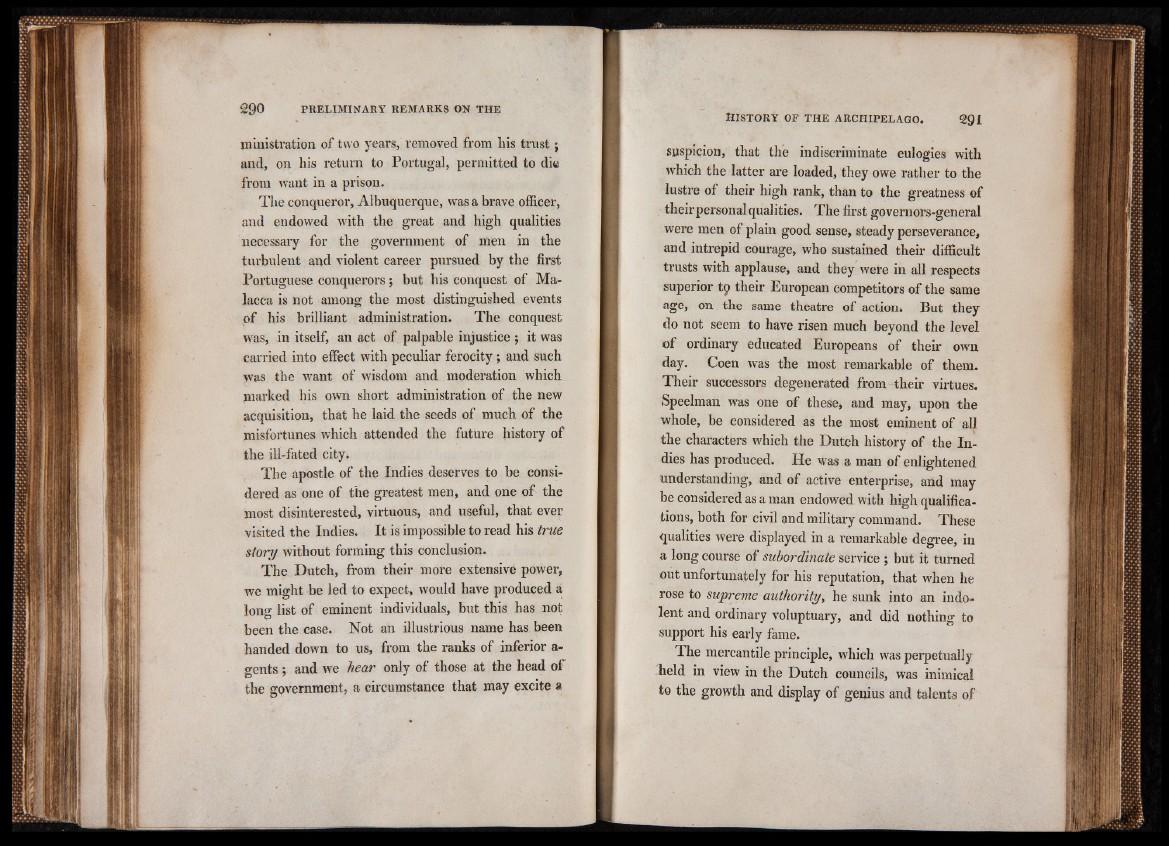
ministration of two years, removed from his trust j
and, on his return to Portugal, permitted to die
from want in a prison.
The conqueror, Albuquerque, was a brave officer,
and endowed with the great and high qualities
necessary for the government of men in the
turbulent and violent career pursued by the first
Portuguese conquerors; but his conquest of Malacca
is not among the most distinguished events
of his brilliant administration. The conquest
was, in itself, an act of palpable injustice ; it was
carried into effect with peculiar ferocity; and such
was the want of wisdom and moderation which
marked his own short administration of the new
acquisition, that he laid the seeds of much of the
misfortunes which attended the future history of
the ill-fated city.
The apostle of the Indies deserves to be considered
as one of the greatest men, and one of the
most disinterested, virtuous, and useful, that ever
visited the Indies. It is impossible to read his true
story without forming this conclusion.
The Dutch, from their more extensive power,
we might be led to expect, would have produced a
long list of eminent individuals, but this has not
been the case. Not an illustrious name has been
handed down to us, from the ranks of inferior a-
gents j and we hear only of those at the head of
the government, a circumstance that may excite a
suspicion, that the indiscriminate eulogies with
which the latter are loaded, they owe rather to the
lustre of their high rank, than to the greatness of
their personal qualities. The first govemors-general
were men of plain good sense, steady perseverance,
and intrepid courage, who sustained their difficult
trusts with applause, and they were in all respects
superior tp their European competitors of the same
age, on the same theatre of action. But they
do not seem to have risen much beyond the level
of ordinary educated Europeans of their own
day. Coen was the most remarkable of them.
Their successors degenerated from-their virtues.
Speelman was one of these, and may, upon the
whole, be considered as the most eminent of all
the characters which the Dutch history of the Indies
has produced. He was a man of enlightened
understanding, and of active enterprise, and may
be considered as a man endowed with high qualifications,
both for civil and military command, These
qualities were displayed in a remarkable degree, in
a long course of subordinate service ; but it turned
out unfortunately for his reputation, that when he
rose to supreme authority, he sunk into an indolent
and ordinary voluptuary, and did nothing to
support his early fame.
The mercantile principle, which was perpetually
held in view in the Dutch councils, was inimical
to the growth and display of genius and talents of